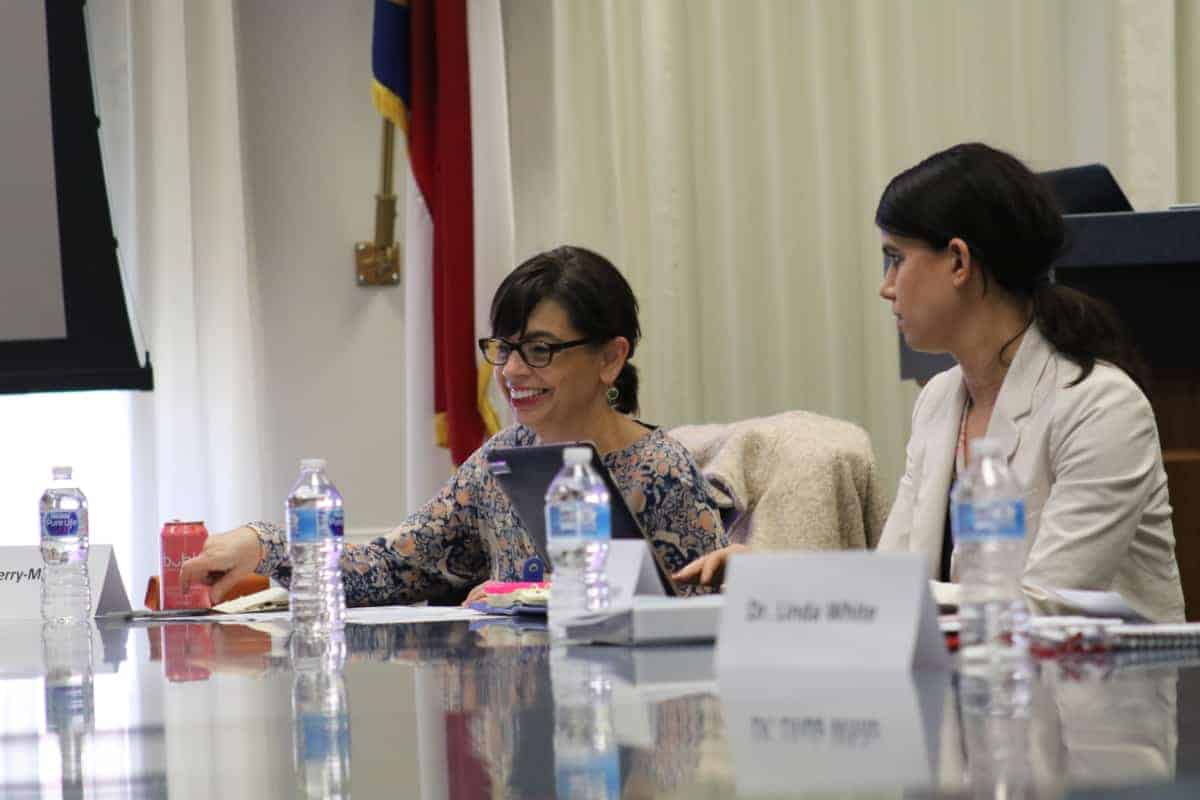A council tasked with rethinking the education system for children from birth to third grade is boiling down its priorities for legislative action and policy changes, including transitioning children into kindergarten, improving data collection and sharing, and pushing for higher NC Pre-K reimbursement rates. The B-3 Interagency Council was created by the legislature in 2017 in hopes of more collaboration between the Department of Public Instruction (DPI) and the Department of Health and Human Services (DHHS), which oversee K-12 schools and early childhood education, respectively.
Members are nailing down the council’s first concrete steps in building a cohesive system for young children. Rebecca Planchard, DHHS’s early childhood advisor, said an unofficial list of recommendations has been sent to the General Assembly, though no legislation has been introduced yet.
“I think the intent of this conversation… was thinking through what this council wants to do next,” said Planchard, who is not on the council but walked members through their progress on each priority. “Where do we go from here? What recommendations do you want to move on and how do you want to move on them?”
The council’s ability to make legislative changes somewhat rides on legislators’ willingness to introduce bills on its behalf. Rep. Craig Horn, R-Union, and Rep. Josh Dobson, R-Avery, McDowell, Mitchell, have served on the council since its inception. This year, two new legislators were appointed to the council: Sen. Deanna Ballard, R-Alleghany, Ashe, Surry, Watauga, Wilkes, and Sen. Rick Horner, R-Johnston, Nash. Horner attended some of Wednesday’s meeting and raised concerns that charter schools were being left out of conversations around transition plans from preschool to kindergarten.
The council wants to both smooth transitions for children from preschool to kindergarten and strengthen coordination between early childhood and K-12 systems. To do that, the council is recommending changing a state law that already requires transition plans for students who are struggling academically as they move from elementary to middle school and middle to high school. The council’s recommended change would require local school districts to work with local early childhood programs to create transition plans for all children coming into kindergarten.
On the system level, the council recommends the establishment of a memorandum of understanding between state partners (including DPI, DHHS, Head Start, and Smart Start) that identifies transition roles for each entity and works towards alignment between systems on education standards. The council also recommends a revision to the state’s Every Student Succeeds Act (ESSA) to include coordination strategies for transitioning children between the two systems.
On the ground level, the council wants to create transition planning requirements for local school districts under State Board of Education policy and for early childhood programs under NC Pre-K policies. The council also wants to establish rules for programs receiving child care subsidies.
“We are looking to both ask the public school system to be required to engage with the early childhood system and the early childhood pre-K system to engage with them,” said Susan Perry-Manning, DHHS’s Deputy Secretary for Human Services and the council’s co-chair. “… It’s a two-way street.”
Anna Carter, DHHS’s director of the division of child development and early education, added that there are many students who are not in any formal setting before kindergarten. On the school district side, she said, all children should be included in planning efforts.
“The overall goal is that there’s been this effort within that community to develop that plan for a four-year-old — whether they are subsidy, private pay, coming from a half-day program, coming from home, or coming from pre-K — going into that kindergarten,” Carter said.
The council recommends several actions around improving data collection sharing across systems. Through a federal Preschool Development Grant, the council recommends analyzing and evaluating the current data landscape for systems that track information tied to children birth to 8-years-old and conducting a survey among data users like teachers, policymakers, government agencies, and other stakeholders to find information gaps in data systems. The contracts for both of those surveys, Planchard said, are near finalization.
The council is also recommending a fiscal note to create a data system to share information between early childhood programs serving 4-year-olds and local school districts. Since DPI, along with a cross-agency working group, is already developing a statewide longitudinal data system, the council is waiting to see what funding gaps exist in their work.
Susan Gates, a council member and SAS Institute’s education advisor, again emphasized the need for capturing children who are not in child care programs but could be.
“It’s great to know what kids are being served, but we need to understand how many are eligible and not being served,” Gates said. “And that’s not being captured well.”
The council is recommending that all pre-K teacher assistants have the same level of education, whether or not they teach in a private or public setting. Carter said around 130 public pre-K teacher assistants do not meet the same standard as private pre-K teacher assistants because of an exception in the Child Care Commission’s policies. This change, which will go in front of the commission at its next meeting, would require the same standard for all teacher assistants: a minimum of a Child Development Associate credential while working on an associate degree in early childhood, plus at least 15 hours of in-service professional development per year.
Also on the council’s recommendation list are the following items, which would all require legislative action: a licensure system study to see how licensing for early childhood and elementary educators could be aligned, professional development around early childhood education for elementary school principals, and more funding for NC Pre-K reimbursement rates.
Kevin Campbell, council member and chair of the North Carolina Licensed Child Care Association, said he does not think legislators know the extent to which a rate increase is needed to boost pay for early childhood educators.
“The teacher salaries in public schools continue to increase, and with the support of the legislature and the governor, which is very commendable, but when the NC Pre-K programs are trying to compete and be comparable, and we haven’t had a rate increase for six or seven years, we’re so far behind that we’ll never catch up unless there’s a major change in the funding formula,” Campbell said. “It’s not like saying I need 10 percent and I get 8 percent. It’s like, we are quantum behind.”
The council recommends the rate increase should “reflect the cost for hiring high-quality educators, as defined in the NC Pre-K Program Requirements and Guidance.”
For items requiring legislative action, Perry-Manning said legislation will start being drafted. Rep. Dobson, she said, will be introducing legislation soon to increase NC Pre-K reimbursement rates.



